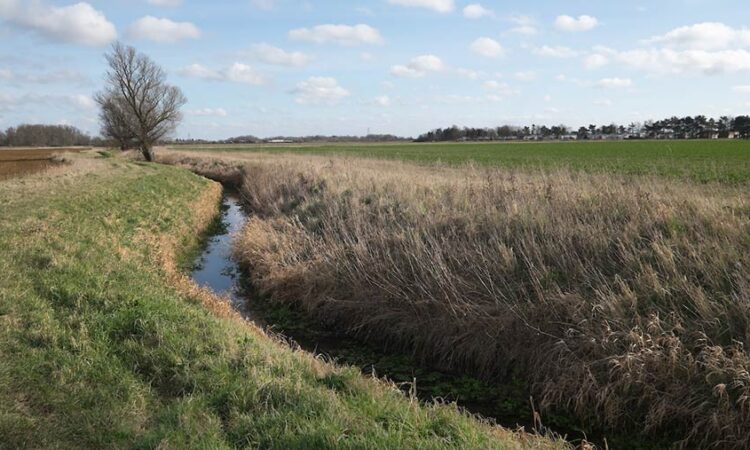
Farmers in priority water catchments could be eligible for up to £30,000 of match funding to invest in solutions that reduce the risk of water pollution, while supporting farm productivity.
Water company Severn Trent is issuing a final call for applications to its current round of Severn Trent Environmental Protection Scheme (Steps) funding, which closes on 31 December 2023.
Dr Adam Freer, senior catchment scientist at Severn Trent, says the company has identified three key concerns in its priority catchments and is urging farmers to pursue funded options that prevent pesticides, nitrates or cryptosporidium from reaching watercourses.
See also: UK wheat area drop and shift to spring drilling is forecast
“Grants are available to all types of farms, for a wide range of infrastructure and land management improvements.
“Plus, we’ve maintained our recently introduced packages offering up to £10,000 match funding across the board,” says Adam.
“For example, we’ve seen the funds being put towards cover crops, pesticide biofilters, livestock pasture pumps and loosening of compacted soil,” he says.
Through the scheme, farmers can apply for pesticide closed transfer systems that enable fast, clean, and safe chemical transfer to and from sprayers, without the need for a full washdown bay.
In catchments where pesticide reduction is a priority, farmers can apply for up to £30,000 for washdown and disposal areas.
There is also up to 100% funding for watercourse fencing in catchments with cryptosporidium issues.
How to apply
- Check you’re in a priority catchment
- To increase your chances of a successful application, seek advice from your local Severn Trent agricultural adviser on what options would best suit your farm
- Fill out your application
- Make sure your application is in by 31 December 2023, bearing in mind that you will have 12 months to complete the work after you are accepted.
Funding
Funding options include:
Pesticide catchment areas
- Closed transfer systems for pesticides
- Pesticide washdown areas, including roofing
- Riverside grass margins
- Biobeds and biofilters
- Alternative weed management in grassland fields
- Precision pesticide application equipment
Nitrate catchment areas
- Cover crops
- Grass margins
Cryptosporidium catchment areas
- Livestock fencing along watercourses
- Hard bases for drinking troughs
- Roofed livestock handling and manure storage areas
- Constructed wetlands
Case study: Stephen Rawlings, Shropshire
One farmer who has taken advantage of Steps is Shropshire-based Stephen Rawlings, who has found the grant scheme to be the most straightforward and business-beneficial option in more than 25 years of farming.
The funding has enabled Stephen to introduce watercourse stock-fencing, hardstanding areas, a water pump and drinking troughs.
“We’ve had funding for stone to strengthen gateways and water trough areas, helping to reduce poaching, soil erosion and sediment run-off.
“This also helps to prevent lameness in our beef cattle and sheep,” says Stephen.
“It’s been a very smooth process, dealing with a real person who knows our farm system.
“I’ve even suggested to one of Defra’s leads that they should take inspiration from Steps.”






